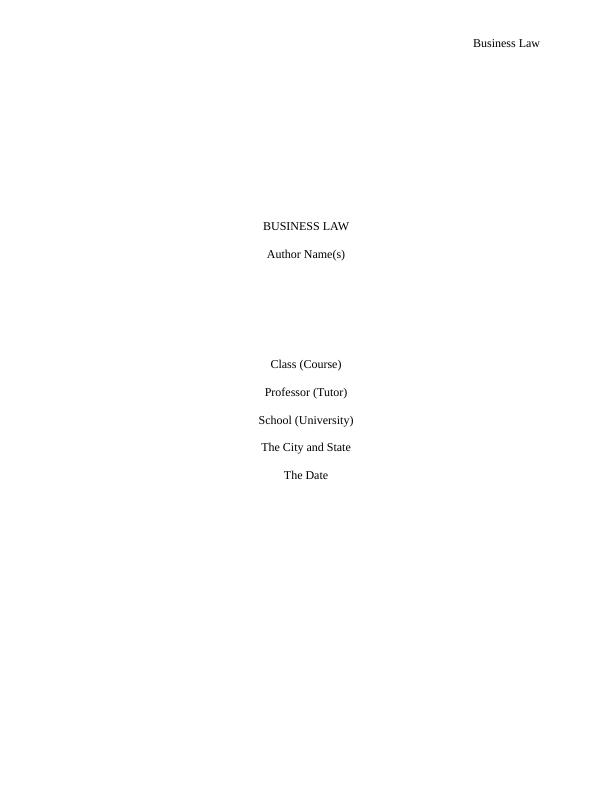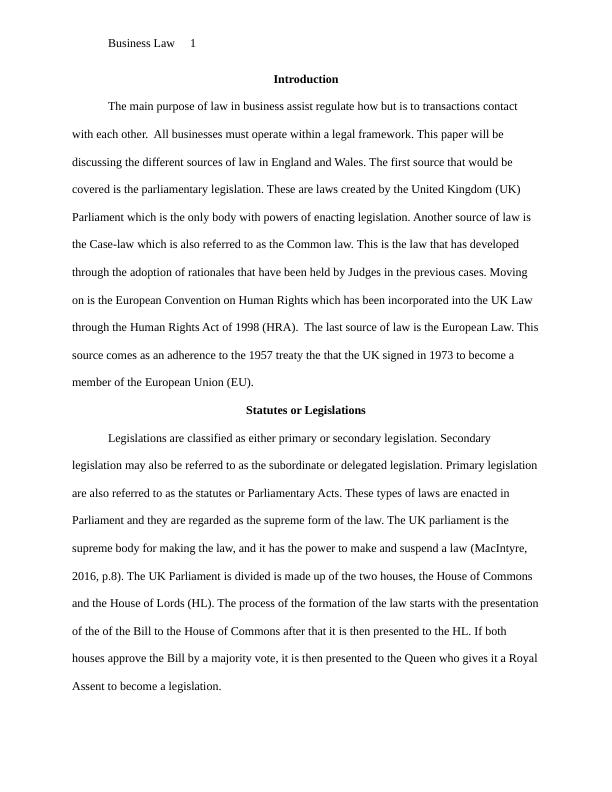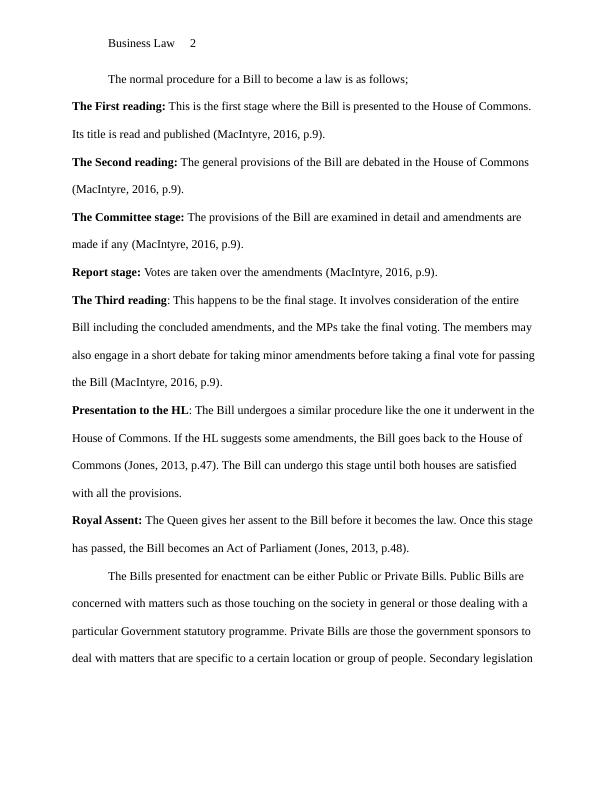Sources of Law in England and Wales
9 Pages2693 Words461 Views
Added on 2023-06-03
About This Document
This paper analyzes the legal system of the UK by looking at the main sources of the law, including parliamentary legislation, case-law, European Convention on Human Rights, European Law, and international/foreign laws. It explains the process of formation of laws in the UK Parliament and the significance of the European Union Law and the Human Rights Act of 1998. The paper also discusses the use of comparative law in the UK legal system.
Sources of Law in England and Wales
Added on 2023-06-03
ShareRelated Documents
End of preview
Want to access all the pages? Upload your documents or become a member.
Introduction to Business Law
|6
|1264
|181
Law Making Process
|22
|1078
|94
Interpretation of Statutes - PDF
|8
|3160
|302
Key Features of Common Law or Civil Law Systems
|8
|2044
|205
Assignment on Interpretation of Statues
|8
|2070
|35
Employment Law in UK: Formal Process, Recruitment Laws, Advantages and Disadvantages
|9
|2618
|222



